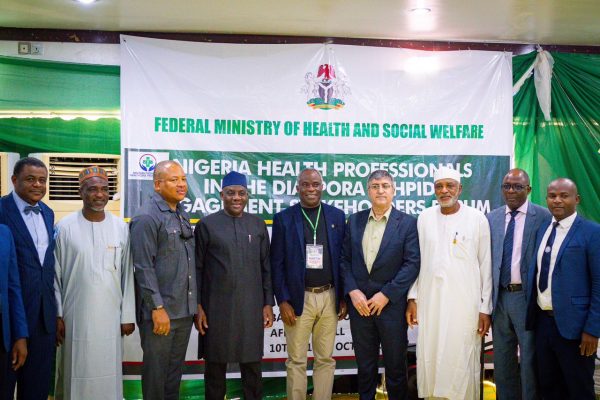The Federal Government of Nigeria has reaffirmed its commitment to harnessing the expertise of Nigerian healthcare professionals abroad to reform the healthcare sector and address the needs of its growing population. This initiative was highlighted by Dr. Tunji Alausa, the Honourable Minister of State for Health and Social Welfare, during the Stakeholders’ Forum for the Nigerian Health Professionals in Diaspora Plus Engagement Programme.
Organized by the Public Private Partnership (PPP) and Diaspora Unit of the Ministry, this forum is a critical step in the government’s long-term strategy to repatriate skills and knowledge from healthcare workers living outside Nigeria. Dr. Alausa emphasized that this collaboration aims to enhance healthcare delivery and transform the sector into a significant contributor to the nation’s Gross Domestic Product (GDP), in line with President Bola Ahmed Tinubu’s Renewed Hope Agenda.
In his address, Dr. Alausa presented a four-point strategic agenda to reform Nigeria’s healthcare system. He stated, “Our colleagues abroad are essential to the transformation we envision for our healthcare sector. Their expertise will help us strengthen our healthcare infrastructure, improve services, and ultimately create employment for our youth.” The four pillars of this agenda are Effective Governance, Efficient and Equitable Health Systems, Unlocking Value Chains, and Health Security. Together, they form the Nigeria Renewed Hope Health Sector Strategic Blueprint (HSSBP), aimed at overcoming systemic challenges and achieving Universal Health Coverage (UHC) by 2030.
A key focus is the third pillar, Unlocking the Value Chain. Dr. Alausa noted that this initiative seeks to make the healthcare sector an economic driver, stating, “By unlocking the value chain, we will not only improve healthcare but also create jobs for our rapidly growing population, making healthcare a significant contributor to our economy, just as it is in developed nations.”
The forum also reiterated the government’s commitment to boosting local manufacturing of drugs, vaccines, diagnostics, and therapeutics. Dr. Alausa urged diaspora professionals to collaborate with local counterparts to advance medical research and technological innovation, positioning Nigeria as a leader in healthcare advancements across Africa. “Together, we can elevate healthcare standards and propel Nigeria forward as a leader in the health sector across the continent,” he remarked, encouraging private sector partners to actively contribute to this evolution.
Professor Sydney Ibeanusi, Director of the Public Private Partnership/Diaspora Unit, stressed the importance of engaging diaspora professionals to enhance the healthcare sector. He asserted that their experience and knowledge are crucial for addressing the sector’s challenges.
Stakeholders, including Dr. Ibrahim Wada, Chief Medical Director of NISA Premier Medical Group, and Professor Eme Bassey, Chairman of the Committee of Chief Medical Directors of Federal Tertiary Hospitals, echoed the call for public-private partnerships (PPPs) and international collaborations as vital for achieving Nigeria’s healthcare objectives.
The event also featured supportive messages from Professor Bala Audu, President of the Nigeria Medical Association, and representatives from the Nigeria Diaspora Commission and Associations of Diaspora Health Professionals, all expressing strong backing for the government’s initiative to engage healthcare workers abroad.
As Nigeria strives to fortify its healthcare system, the active involvement of diaspora professionals stands to be transformative, ensuring sustainable growth while fostering global collaboration in healthcare.










